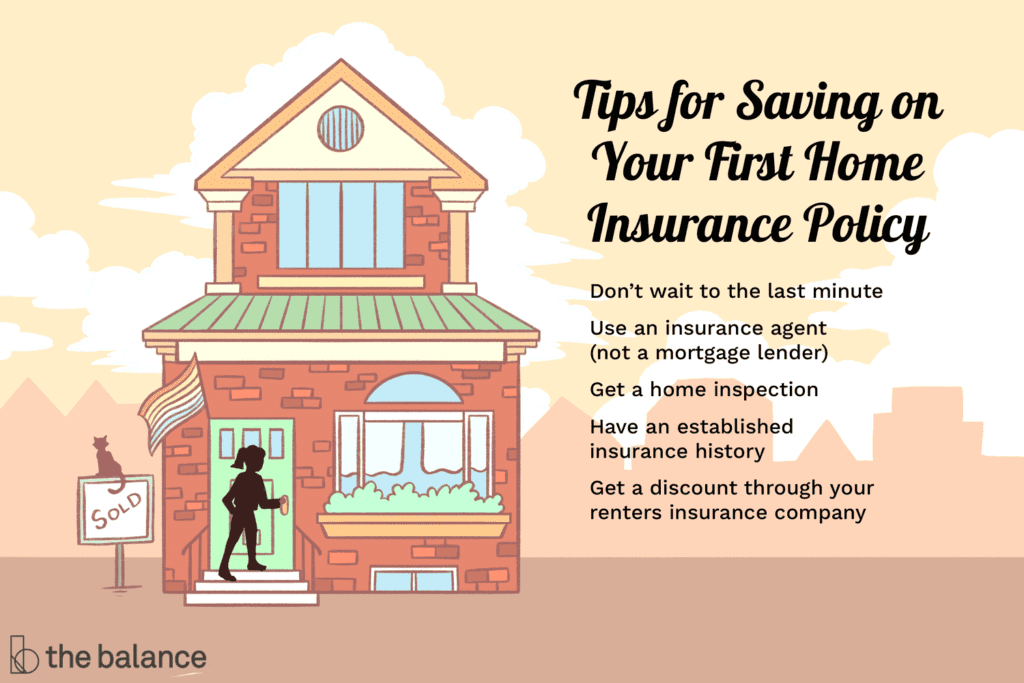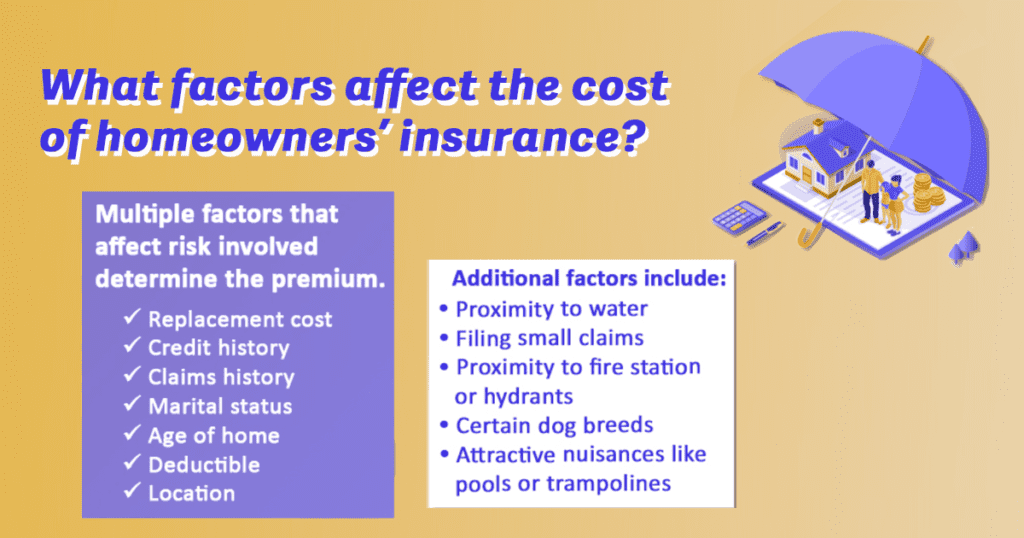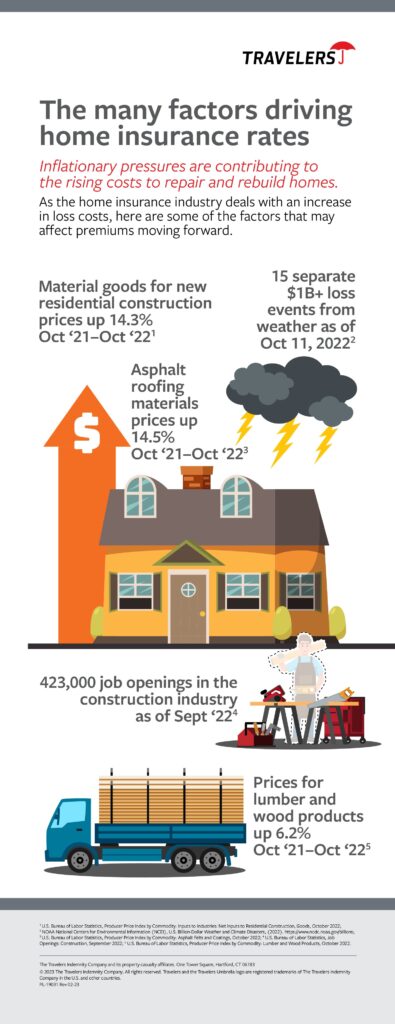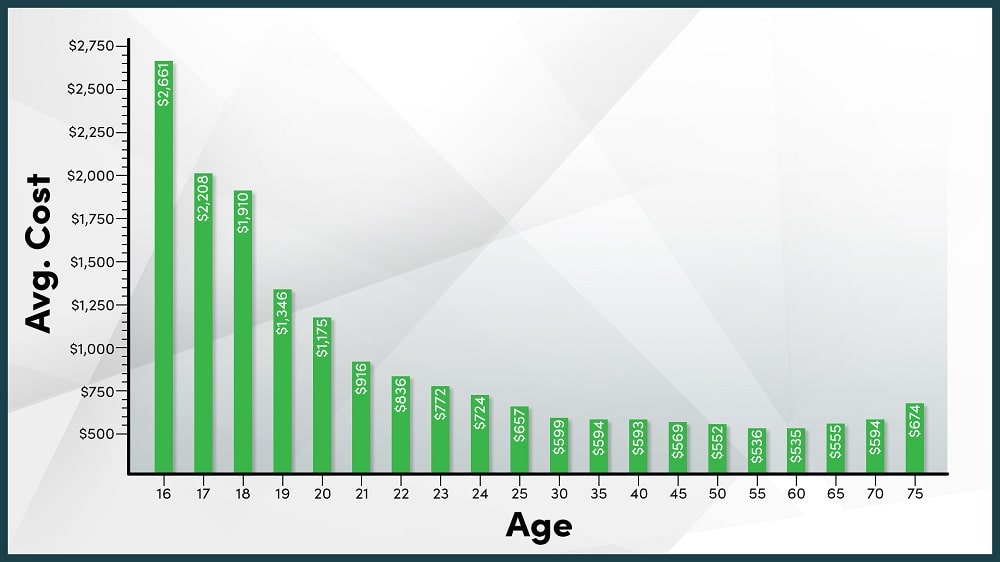Did you know that you may actually have some room for negotiation when it comes to your home insurance premiums? That’s right, contrary to popular belief, the cost of your home insurance isn’t set in stone. By being proactive and armed with a little bit of knowledge, you can potentially save yourself a significant amount of money. In this article, we will explore some strategies and tips to help you negotiate your home insurance premiums and make sure you’re getting the best value for your coverage.


Factors Affecting Home Insurance Premiums
Age and condition of the home
The age and condition of your home play a significant role in determining your home insurance premiums. Older homes may have outdated electrical and plumbing systems that are prone to damage or create a higher risk of fire. Similarly, poorly maintained homes can be more susceptible to issues like leaks and structural damage. Insurance providers take these factors into account when assessing the risk associated with insuring your home, which can impact the premiums you pay.
Location and risk factors
The location of your home is another factor that influences your insurance premiums. Some areas may have a higher risk of natural disasters such as hurricanes, earthquakes, or floods. Additionally, certain locations may have a higher crime rate, which increases the likelihood of theft or vandalism. Insurance providers consider these risk factors when determining your premiums. Living in a high-risk area may lead to higher premiums, while living in a low-risk area may result in lower premiums.
Value of the home and personal belongings
The value of your home and the personal belongings you want to insure will affect your insurance premiums. The higher the value, the more it will cost to replace or repair in the event of damage or loss. Insurance providers consider the replacement cost of your home, as well as the value of your belongings, when calculating your premiums. It is essential to ensure that you accurately evaluate the value of your home and personal belongings to ensure adequate coverage without overpaying for unnecessary coverage.
Type and amount of coverage
The type and amount of coverage you choose for your home insurance policy will impact your premiums. Different types of coverage, such as dwelling coverage, personal property coverage, liability coverage, and additional living expenses coverage, have varying costs associated with them. Additionally, the amount of coverage you select for each category will affect your premiums. Opting for higher coverage limits will result in higher premiums, while choosing lower coverage limits may reduce your premiums. It is crucial to strike a balance between sufficient coverage and affordable premiums.
Claims history
Your claims history plays a role in determining your home insurance premiums. Insurance providers consider your past claims history to assess the likelihood of future claims. If you have a history of frequent or costly claims, it indicates a higher risk to the insurer and may result in higher premiums. Conversely, a clean claims history may work in your favor, leading to lower premiums. It is important to be mindful of this factor and consider whether filing a claim is necessary or if it may increase your premiums in the long run.
Understanding Home Insurance Premiums
What is a home insurance premium?
A home insurance premium is the amount of money you pay to an insurance company to protect your home and its contents against potential risks and damages. It is a recurring payment that is typically made annually or as agreed upon in the policy. The premium ensures that you are financially covered in case of unforeseen events, such as fires, thefts, or natural disasters. By paying your premium, you are essentially transferring the risk of these potential losses to the insurance company.
How are home insurance premiums calculated?
Home insurance premiums are calculated based on a variety of factors, including the ones mentioned earlier, such as the age and condition of your home, its location and risk factors, the value of your home and personal belongings, the type and amount of coverage you select, and your claims history. Insurance providers use complex algorithms and actuarial models to assess the risk associated with insuring your home and calculate the appropriate premium. By considering these factors, insurers ensure that the premiums reflect the level of risk they are taking on.
Why do home insurance premiums increase?
Home insurance premiums may increase for several reasons. One common factor is inflation, which affects the cost of labor and materials needed for repairs or rebuilding. As these costs rise, insurance providers adjust their premiums accordingly. Additionally, changes in the value of your home or personal belongings, as well as changes in the risk factors associated with your location, can also lead to increases in premiums. Finally, if you have a history of filing frequent or costly claims, insurers may view you as a higher-risk policyholder and increase your premiums to compensate for the potential future losses.
How long are home insurance premiums valid?
Home insurance premiums are valid for the period agreed upon in your policy. Typically, home insurance policies have a one-year term, and the premiums you pay are applicable for that year. At the end of the policy term, you will have the option to renew your policy and pay the new premium amount, which may have changed due to various factors. It is important to review your policy documents and communicate with your insurance provider to understand the validity of your premiums and any changes that may occur upon renewal.
How can you lower your home insurance premiums?
Lowering your home insurance premiums is possible through various strategies. Firstly, researching and comparing multiple insurance providers can help you find the most competitive rates available. Additionally, knowing the coverage you need and customizing your policy accordingly can prevent you from paying for unnecessary coverage. Bundle policies, such as combining your home and auto insurance, can often lead to discounted rates. Improving home security measures, maintaining a good credit score, and minimizing claims can also contribute to lower premiums. Regularly reviewing and updating your policy, exploring discounts and loyalty programs, considering switching insurance providers, and consulting with an insurance broker are other effective ways to lower your home insurance premiums.


Negotiating Home Insurance Premiums
Research and compare multiple insurance providers
One of the most effective ways to negotiate home insurance premiums is to research and compare multiple insurance providers. By obtaining quotes from different companies, you can identify the range of premiums available in the market. This information can provide you with a benchmark for negotiation and allow you to leverage competing offers. Take the time to understand the reputation, customer service, and coverage options of each insurer, as these factors should also be considered alongside the premium cost.
Know what coverage you need
To negotiate home insurance premiums successfully, it is essential to have a clear understanding of the coverage you need. Assess the risks associated with your home and personal belongings and evaluate the appropriate coverage limits. By having a well-defined understanding of your insurance needs, you can confidently negotiate with insurance providers and compare the premiums they offer for the desired coverage. Avoid over-insuring or under-insuring your home, as both scenarios can lead to unnecessary expenses or inadequate coverage.
Consider bundled policies
Bundling your home insurance with other policies, such as auto insurance or life insurance, can often lead to discounted premiums. Insurance providers appreciate the opportunity to retain multiple lines of coverage from a single policyholder, which can result in cost savings for you. When negotiating home insurance premiums, inquire about the possibility of bundling policies and the potential discounts available. Evaluate the additional policies you may require and consider their overall cost savings in conjunction with your home insurance.
Improve home security
Enhancing the security measures of your home can contribute to lower insurance premiums. Installing security systems, such as burglar alarms, fire alarms, or surveillance cameras, can reduce the risk of theft, fire, or vandalism, which insurance providers view favorably. Additionally, reinforcing doors and windows, implementing deadbolt locks, and joining neighborhood watch programs can also improve the security of your home. When negotiating home insurance premiums, mention the security measures you have implemented, as this may result in discounted rates or more favorable terms.
Increase deductible
Another strategy to lower your home insurance premiums is to increase your deductible. The deductible is the amount of money you agree to pay out of pocket before the insurance coverage kicks in. By opting for a higher deductible, you assume more responsibility for the initial expenses, reducing the overall risk to the insurance provider. Consequently, insurers often offer lower premiums in exchange for higher deductibles. Carefully consider your financial ability to cover the deductible amount in the event of a claim before agreeing to an increased deductible.
Maintain good credit score
Your credit score can influence your insurance premiums. Insurance providers may consider your credit score as an indicator of financial stability and responsibility. A higher credit score is generally associated with a lower risk profile, which can result in lower premiums. By maintaining a good credit score, paying bills on time, minimizing debt, and managing credit responsibly, you can potentially negotiate more favorable home insurance premiums. Stay informed about your credit score and take steps to improve it if necessary.
Review and update policy annually
Regularly reviewing and updating your home insurance policy can help you optimize your premiums. As your circumstances change over time, it is important to reassess the coverage and deductibles you require. Evaluate any changes in the value of your home or personal belongings, as well as any improvements made to your property. Notify your insurance provider of these updates to ensure that your coverage adequately reflects your current situation. By proactively reviewing and updating your policy, you can identify potential premium reductions or optimize coverage terms.
Ask about discounts and loyalty programs
When negotiating home insurance premiums, don’t hesitate to ask about available discounts and loyalty programs. Insurance providers often offer discounts for certain factors, such as having a monitored security system, being a non-smoker, or being claim-free for a specified period. Inquire about these discounts and any loyalty programs that reward long-term policyholders. Taking advantage of available discounts can lead to considerable savings in your premiums over time.
Consider switching insurance providers
If you are unsatisfied with the home insurance premiums or service provided by your current insurer, consider switching insurance providers. Market conditions, changes in your personal circumstances, or simply the desire for a more competitive rate can be valid reasons to explore other options. Research other insurance providers, obtain quotes, and compare the premiums, coverage, and customer reviews. By demonstrating your willingness to switch insurers, you may be able to negotiate lower premiums or attract more competitive offers from your current insurer.
Consult with an insurance broker
Engaging the services of an insurance broker can be a valuable resource when negotiating home insurance premiums. Insurance brokers have expertise in the insurance industry and can provide unbiased advice and assistance in finding the best coverage and premiums for your specific needs. They have access to multiple insurance providers and can compare quotes on your behalf, potentially uncovering more favorable rates. Collaborating with an insurance broker can simplify the negotiation process and increase your chances of securing desirable home insurance premiums.


Tips for Successful Negotiation
Prepare and gather necessary information
Before entering into negotiations for home insurance premiums, it is crucial to prepare and gather all necessary information. Familiarize yourself with your current policy terms, coverage, and premium amount. Research the market rates and premiums offered by other insurers. Determine your desired coverage limits and evaluate any changes in the value of your home or personal belongings. By equipping yourself with this information, you can negotiate from an informed position and effectively communicate your needs and expectations.
Be aware of your policy options and benefits
Understanding your policy options and benefits is essential for successful negotiation. Take the time to thoroughly review your current policy and identify any areas that may require modification or clarification. This knowledge will enable you to discuss specific coverage options, deductibles, or endorsements that may be more suitable for your needs. Communicate your awareness of the policy benefits and inquire about any additional benefits or coverage enhancements that may be available. By being well-informed, you can engage in meaningful discussions with insurance providers and negotiate advantageous terms.
Be confident and assertive
When negotiating home insurance premiums, it is important to approach the conversation with confidence and assertiveness. Clearly express your understanding of your insurance needs and your expectations for premiums. Avoid being overly deferential or easily swayed by pressure tactics. Assert your desire for fair premiums based on accurate risk assessments and in consideration of the policies and benefits available in the market. By maintaining a confident and assertive tone, you enhance your bargaining position and increase the likelihood of securing favorable premiums.
Negotiate from a position of strength
To negotiate effectively and achieve desirable home insurance premiums, it is beneficial to negotiate from a position of strength. This strength can be derived from various factors, such as having multiple quotes from different insurers, demonstrating a good claims history, or having a desirable risk profile. Emphasize your strengths during the negotiation process to position yourself as a reliable and valuable policyholder. Highlight any risk mitigation measures you have implemented, such as home security improvements, and emphasize your commitment to minimizing potential losses. By establishing a position of strength, you can strengthen your negotiating power and achieve better premiums.
Consider other alternatives
While negotiating home insurance premiums, it is important to consider other alternatives. Explore different policies, coverage options, and insurance providers. Assess the benefits and drawbacks of each alternative, including the premiums, deductibles, coverage limits, and additional features offered. By widening your scope of consideration, you may discover more attractive options that meet your needs and provide better value. Be open to exploring unconventional solutions and creative approaches to insurance coverage. By considering other alternatives, you can negotiate from a position of choice and secure the most favorable premium for your circumstances.
Take time to review and compare offers
When negotiating home insurance premiums, resist the urge to make hasty decisions. Instead, take the time to carefully review and compare the offers presented to you. Assess the coverage options, premium amounts, deductibles, and any special conditions associated with each offer. Consider the financial implications and the level of protection offered. Take note of any discrepancies between the different offers and seek clarification from the insurance providers. By conducting a thorough review and comparison, you can make an informed decision that aligns with your needs and financial objectives.
Be willing to walk away
Lastly, be willing to walk away if the negotiation does not result in satisfactory premiums. Maintaining the willingness to explore other options is empowering and demonstrates your commitment to securing the best value for your home insurance coverage. If the insurer is unwilling to offer competitive premiums or address your concerns adequately, consider seeking alternatives. Your proactive approach and willingness to walk away may prompt the insurer to reconsider their position or present you with revised offers that better meet your expectations. Remember, it is your right as a consumer to seek the most favorable premiums and coverage terms available in the market.









